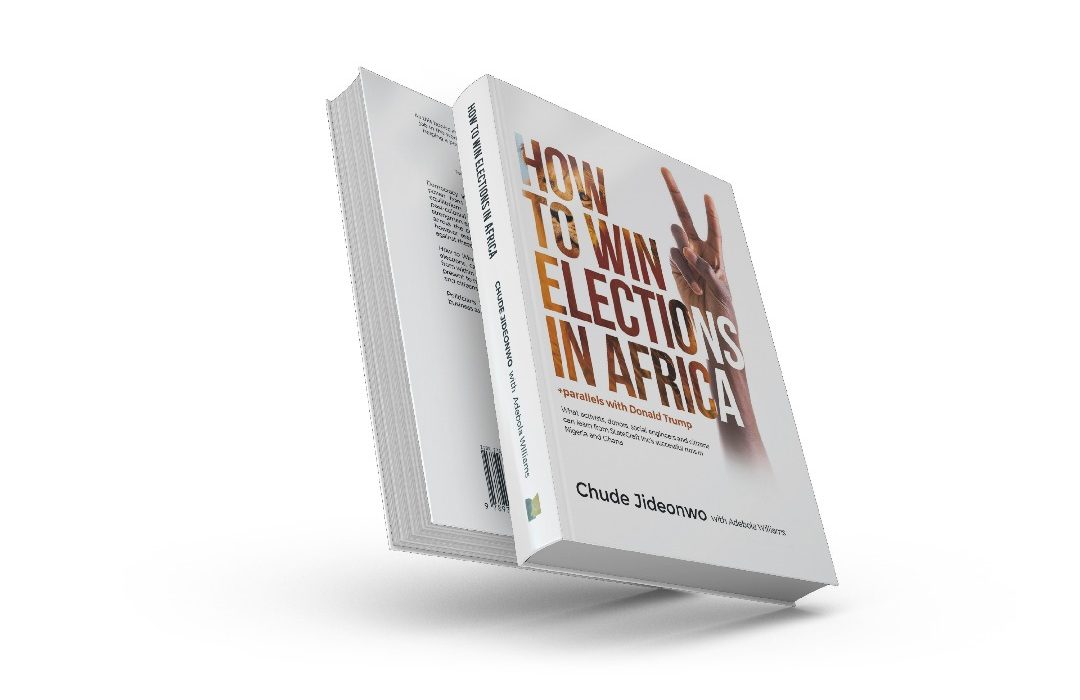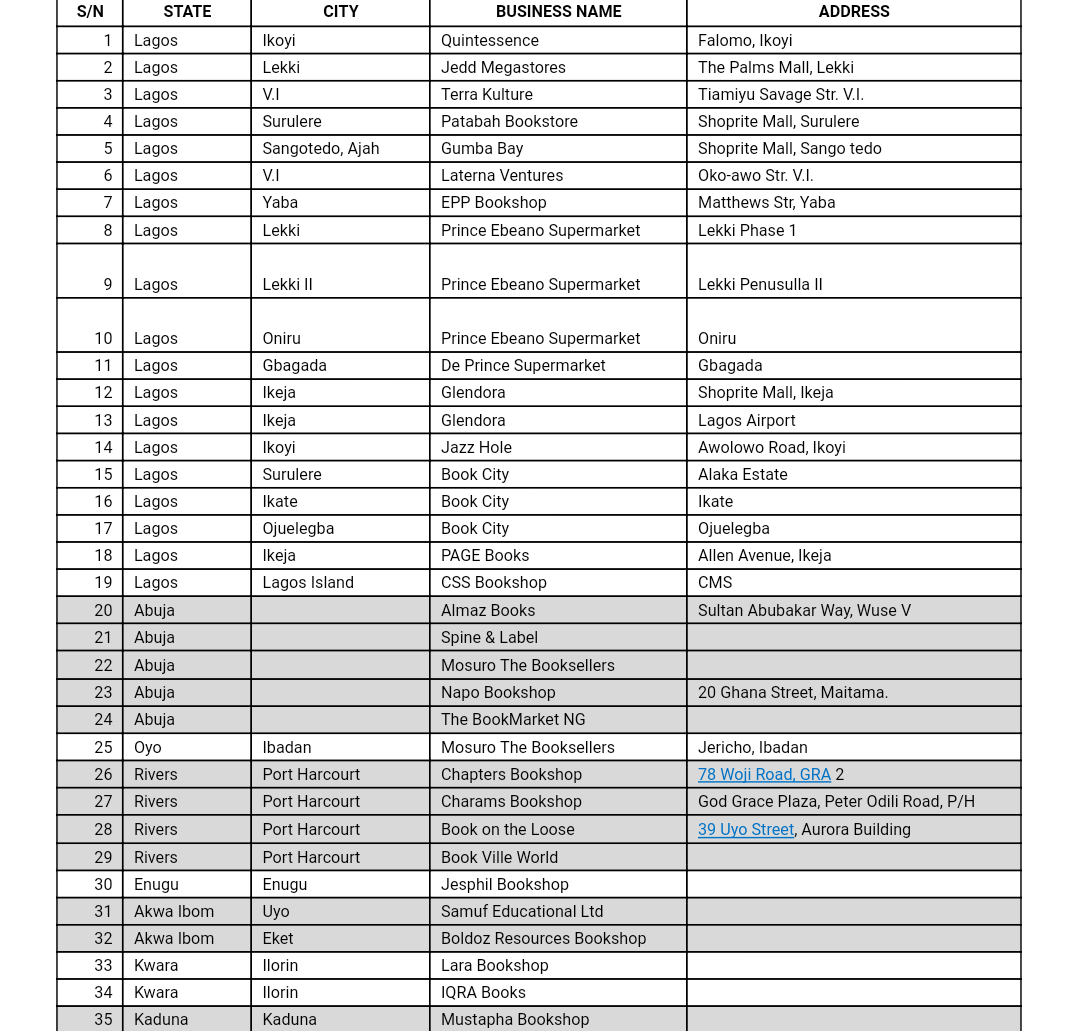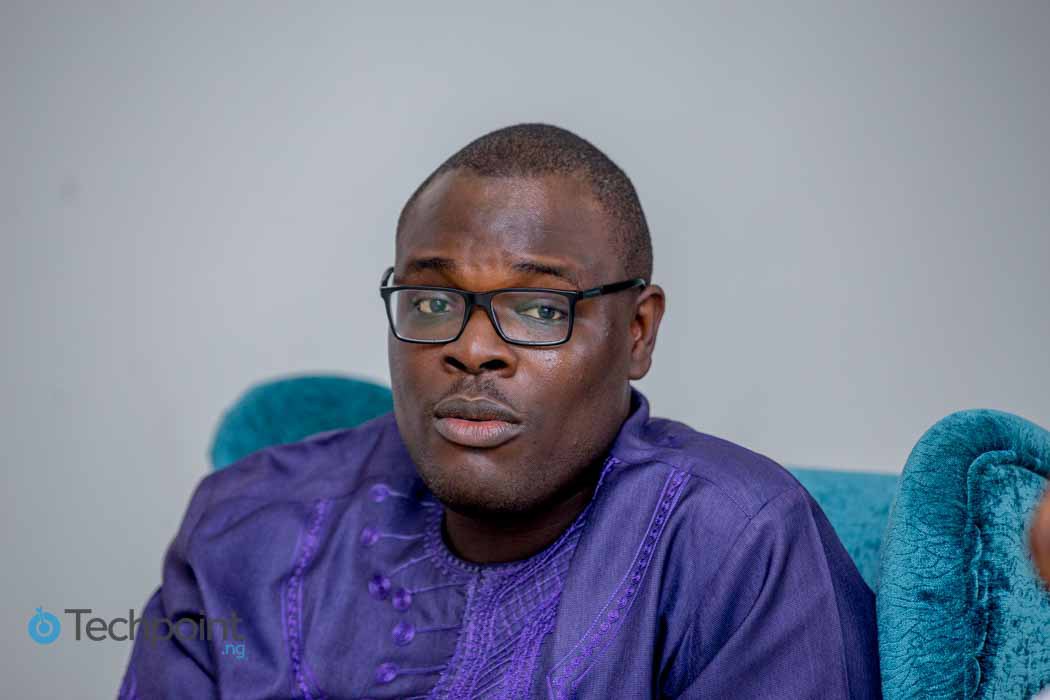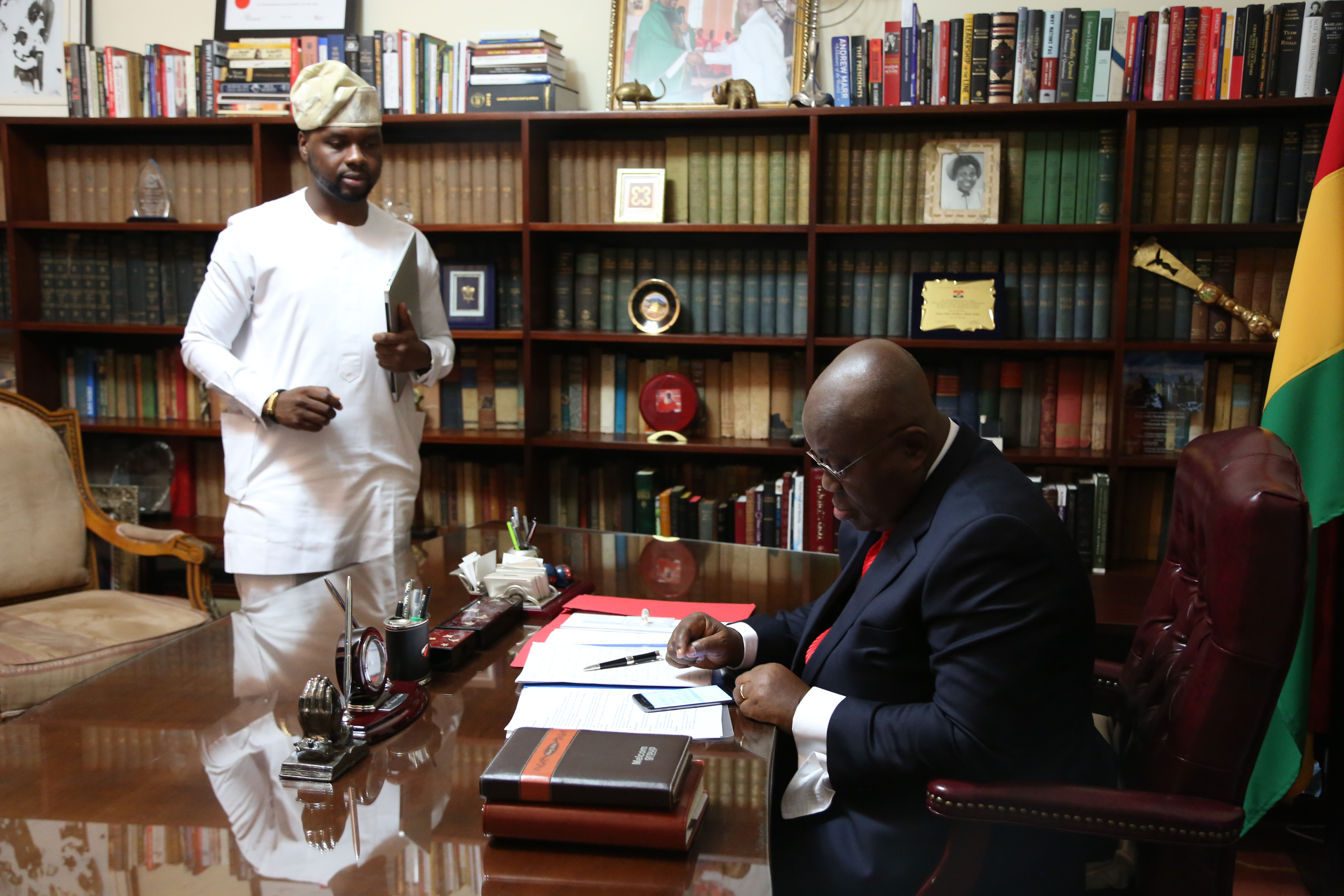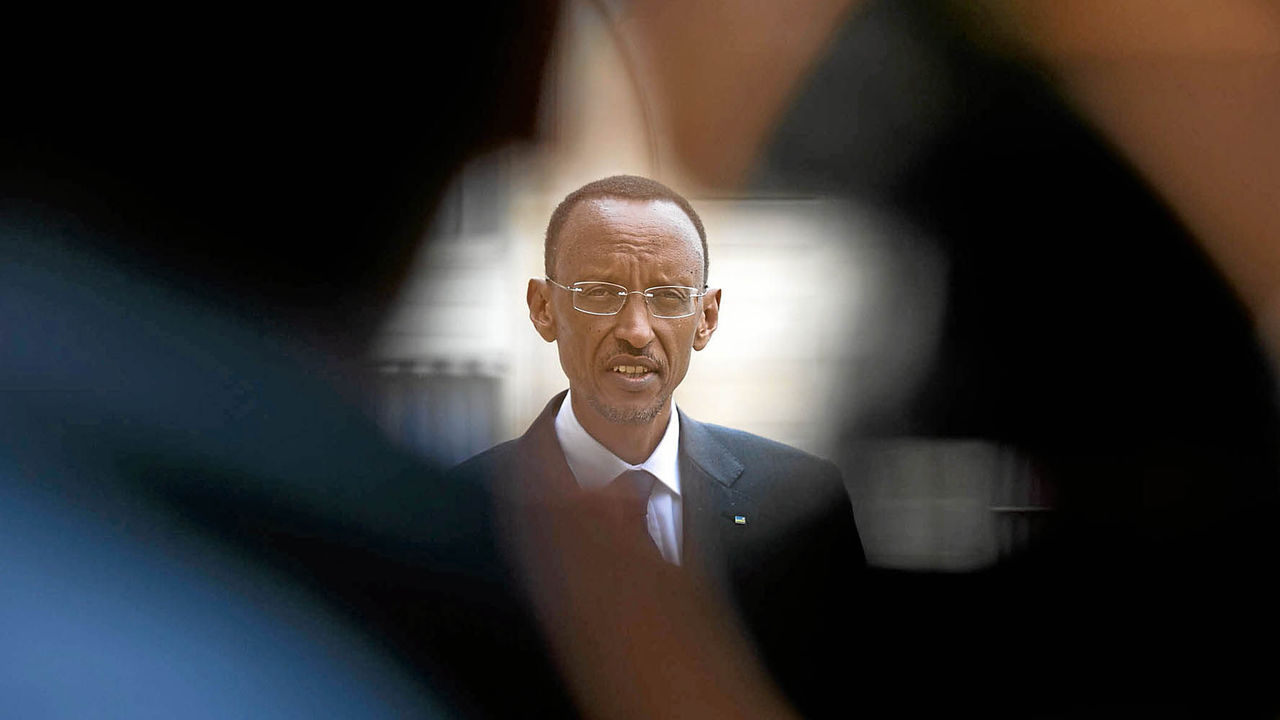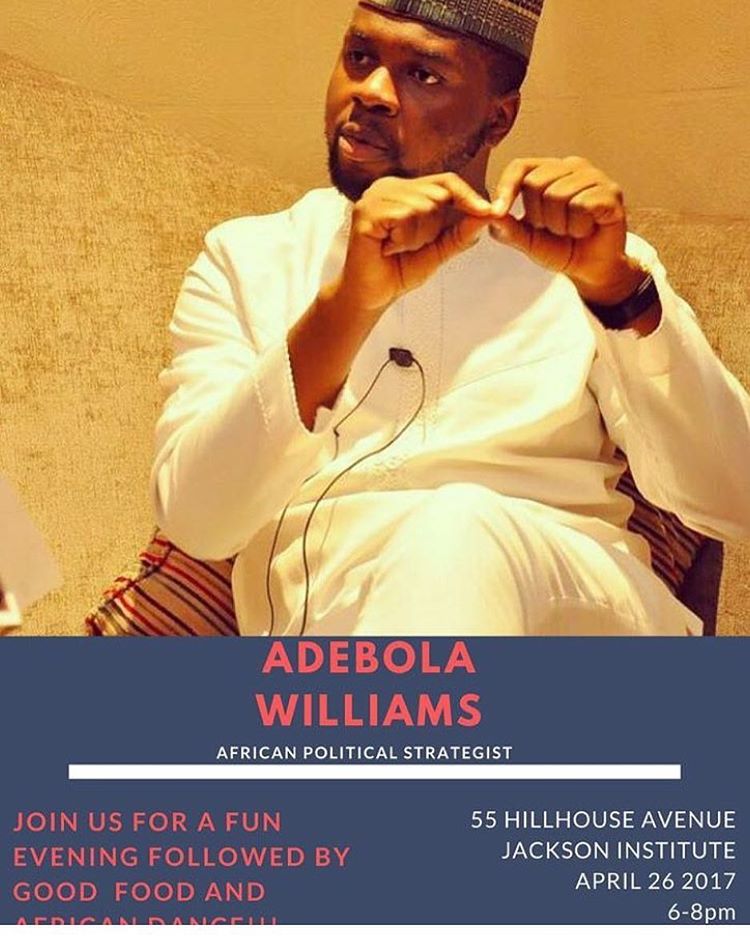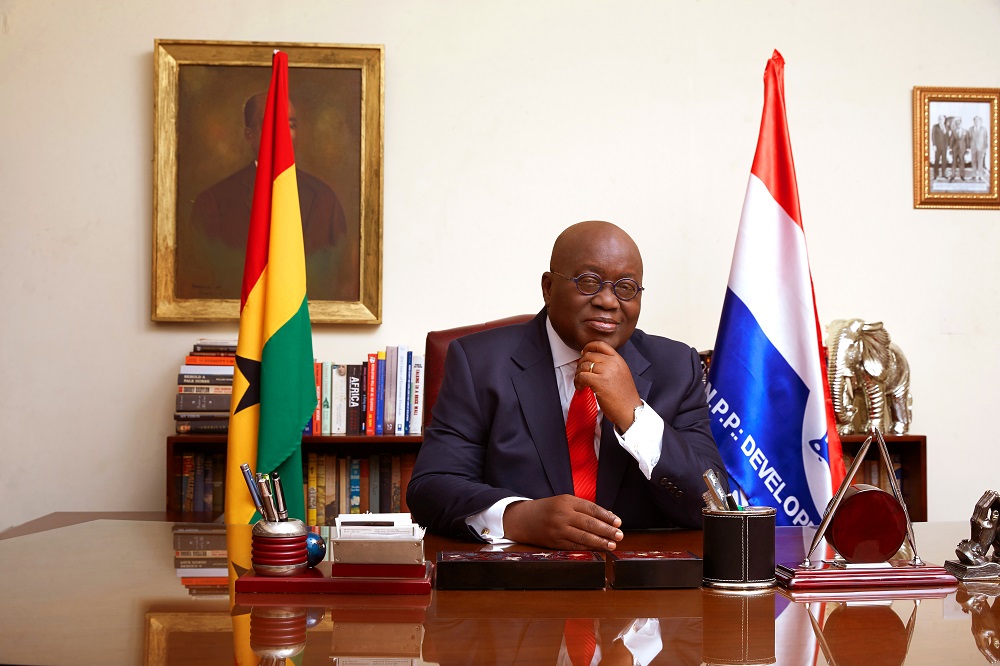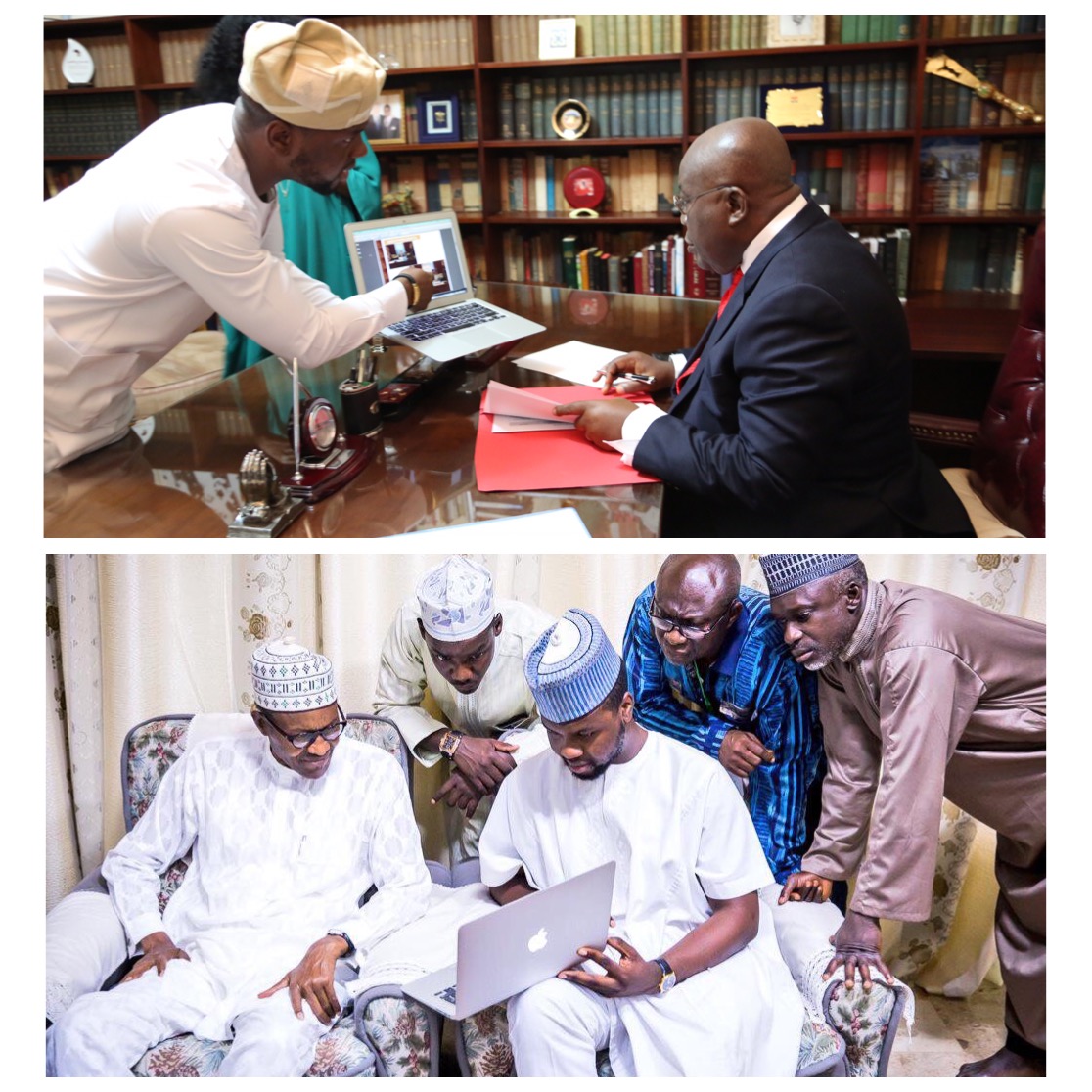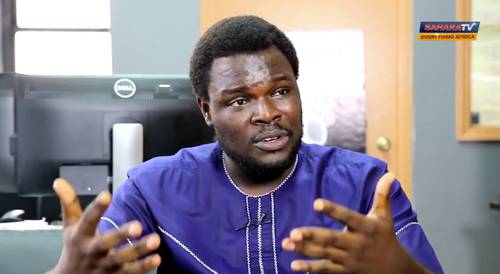Liberia gave itself a beautiful gift
(NewsDay) For the first time in several generations, a democratically-elected President in Liberia is going to hand over power to another democratically elected President in Liberia.
By Chude Jideonwo
It is Ellen Johnson Sirleaf’s singular legacy that she has made this look normal, but there is nothing normal about what happened in Liberia last Tuesday.
Liberia was supposed to be a success story. Often called the continent’s first and oldest modern republic, in 1847, it became the first African republic to proclaim independence. It was a founding member of the League of Nations, United Nations and the Organisation of African Unity.
Its problems began in 1980 when William R Tolbert was overthrown in a military coup that resulted in about 23 years of political crises and two civil wars. These wars have resulted in the deaths of at least 250 000 people and then wiped out over 90% of the nation’s economy. That economy was so weakened that by the time the Ebola epidemic arrived in 2014, there was simply no bulwark against the onslaught.
The nation’s international image in the 1990s was defined by the terror of Charles Taylor. Peace did not return to the fragile country until 2003, when President Taylor, in a nod to the Accra Comprehensive Peace Agreement, resigned in 2003 amid an Interpol arrest warrant for war crimes committed as he led the Revolutionary United Front rebel force in neighbouring Sierra Leone. He is now locked up, thankfully, in a British prison for 50 years.
The election of Ellen Johnson Sirleaf, in 2005 brought peace, and it brought stability. Her calm, measured governance, while the subject of political dispute in her fractured country, has given the nation an image of sanity and growth in the international space. While over 80% of the population continues to live under the international poverty line, the country was credibly able to marshal an international coalition to fight Ebola and to help rebuild the nation.
In the same way, Liberia has managed again to impress the world with an oncoming election that has been defined by flourishing debate, an engaged civil society, a multiplicity of active options, a largely trusted electoral process and a strong expectation of fair polls.
Indeed, for those who have visited Liberia within the last few months, the march to strengthen democracy has often felt like a party; an ongoing celebration of a people’s will, a people’s dreams and the possibilities of useful change as 20 registered candidates battle to replace the first woman to be democratically elected President in Africa.
Those candidates include her deputy for 12 years, Joseph Boakai; the international footballer George Weah (who lost in a runoff to Sirleaf in 2005) who are the frontrunners.
Other candidates are former warlord, Prince Johnson who came in third when he ran for President in 2011; Benoni Urey, who is reputed to be Liberia’s richest man; Charles Brumskine who is a veteran opposition figure, and Alexander Cummings, who is a respected business leader from Coca-Cola. There is also MacDella Cooper, who is the lone female candidate in the race.
In essence, this is a keenly contested presidential election, fully engaging the citizens of the country and fully providing a range of options for the country’s uncertain future.
Last Tuesday, almost half of the population (2,1 million registered) voters poured into the streets to vote at 5 390 polling stations across 15 counties. They will be enjoying the legacy of 12 years of uninterrupted peace and stability and a nation still existing in spite of two civil wars, a debilitating epidemic and an economy in permanent depression.
But for these voters, as well as the 148 international observers from the African Union, the Economic Community of West African States, The Carter Foundation, and the National Democratic Institute, that’s even more reason to vote.
Last Tuesday was a statement. A statement that Liberia has resolutely chosen democracy, and a statement that Liberia insists on marching forward
For a nation founded on the soaring hope that black people had better chances for freedom in Africa than in the United States, there is no gift more beautiful than this one.
lJideonwo is co-founder of StateCraft Inc, which has worked with presidential candidates in Nigeria, Ghana and Kenya. His latest book is How to Win Elections in Africa.
This article was publish on NewsDay
The Nigerian media mogul who helped three presidents get elected
(CNN)It would be a remarkable achievement for an entrepreneur of any age, but at just 31 years old, Nigerian Adebola Williams has already helped three presidential candidates to election victory.
As the founder of political communications agency StateCraft Inc, Williams worked on the campaign that got Goodluck Jonathan elected to the Nigerian presidency in 2011.
Four years later he provided his services for the successful election campaign for Jonathan’s rival, current President Muhammadu Buhari.
Then, completing his hat trick, he worked on the communication strategies that helped secure the election of Ghanaian President Nana Akufo-Addo in 2016.
Now Williams has now co-written a book, “How to win elections in Africa,” detailing his techniques.
So what’s his advice for wining an African election? His strategy sounds simple: brush up the presidential candidate’s image and, crucially, bolster his popularity among the youth.
Using media for change — and elections
Williams attributes his success with StateCraft Inc. to his understanding of the youth market.
“Where we have an edge is that we’re young people, and we’ve worked with young people for 12 years,” he says. “We understand how young people in Africa think, we understand the key issues.”
That understanding has come from building a media empire that goes beyond StateCraft.
Along with business partner Chude Jideonwo, in 2006 he founded Red Media Africa, a corporate PR and communication company based in Nigeria, which has worked with the likes of Facebook, Uber and Intel.
Through parent company Red, they also own content brand Generation Y!, which runs a number of Nigerian media platforms, as well as The Future Project, a social enterprise that celebrates outstanding young Africans through its annual Future Awards.
“We work to change narratives, to shape opinion, to drive a common good and provoke action,” says Williams. “So that is a journey — using media for change and using media for elections.”
From an early age, Williams was desperate to be on television, and at the age of 17 he landed his first gig co-presenting a TV show, “Youth Talk,” on Nigeria’s national NTA Network.
By 19 he was producing his own show, “Nigeria International.”
“I just wanted to be in the media space … because I believe that the media is the best tool to reach people,” he says.
Coaching presidents to be media-savvy was a natural progression.
Williams established StateCraft Inc. after presidential candidate Jonathan’s team reached out to him in 2011 for help with a communication strategy. Williams was optimistic he was the leader Nigeria needed.
“Jonathan came through to us as a leader who appreciated the importance of youth participating in national development on all fronts,” he says. “We went into it hopeful that he was going to be a breath of fresh air.”
Helping the opposition
But Williams says he switched sides when he felt the Jonathan administration had fallen short on many areas of governance.
“When we were then approached by the Buhari campaign in late 2014 … we didn’t have much of a doubt it was the right thing to do,” he says.
Williams says StateCraft helped “humanize” Buhari’s message of change to connect with the youth. Through photo shoots and a social media campaign, the team “softened” his image when needed and “refreshed the firm leader image” to communicate his stance on corruption and security, he explains.
Choosing who to represent
Following President Buhari’s election in Nigeria in 2015, Williams was approached by the two main political parties in Ghana to work his magic.
After analyzing the current state of Ghana, finding out what the citizens wanted and meeting the two presidential candidates, Williams chose to represent Akufo-Addo.
“What we did in Ghana was present a candidate in the way that connects to young people in Ghana … connects to pop culture in Ghana, connects to anger in Ghana and then direct the people to action, and the action is really to vote for our candidate.”
When it comes to deciding what makes a great African leader, Williams believes that African countries need to be more like startups.
“(We need to) get to a point where those who are in the eye of the decision have come from an entrepreneurial or intrapreneurial background, who understand the concept of growing something.”
*This article was published by Katy Scott on CNN and The Philadelphia Tribune.
Rwanda is a difficult question for young Africans – but our history has answers
“98+% victory!?,” Ken Roth, president of Human Rights Watch tweeted after the electoral commission declared Paul Kagame winner of the Rwandan president elections. “If Rwanda Pres Kagame were so confident in his leadership, why didn’t he allow any real opposition?”
Kagame, 59, won the election in a landslide, with over 98% of the vote, giving him a third term that extends his already 17-year leadership over the central African country.
Of course, Roth faced backlash, mostly from young Africans on Twitter.
The same backlash the Economist got when it dared to suggest, in a video published close to the elections, that Rwanda is, in fact, an authoritarian regime, where dissent may be a matter of life and death and democracy is yet to be competitive.
“Travel through Rwanda and you will see order and cleanliness, and solid infrastructure. The country has changed a lot,” wrote one young Nigerian. “But Rwanda’s development under Paul Kagame has come at a cost, and this was the core message of The Economist’s video. Kagame’s time as Rwanda’s president has been marked by human rights abuse and stained by press repression and the fear of opposition.
“On the surface, there is nothing wrong with a video criticising Kagame while highlighting the progress Rwanda has made under his presidency. But when you consider other contexts, you begin to see why it is problematic. Most of the reactions to the video on social media have been negative. Because we’ve seen this play out before. It happened with Libya, it could happen again if care is not taken. The next step, we know, is to demonise Rwanda in those two terms – a “dictator” and a “regime”. Africans will not sit and watch you do that.”
That is the crux of the matter.
For many young Africans, Rwanda is a difficult question. Despite the fact that Kagame changed the rules in the middle of the game by manipulating the constitution to give himself a third term, the truth is that the Rwanda story is a success story. Indices from gender parity to unemployment prove that this president knows what he is doing – a rarity across much of Africa. Not to talk of the peace that pervades the nation that was tearing itself apart in a genocide only 20 years ago. Why would anyone want to change that?
Well, the answer is history.
The history of the continent is littered with cautionary tales along similar paths. Strongmen won freedom for their nations, beginning on the path to growth and transformation, only to fall prey to their own egos; becoming the problems they were meant to solve.
Zaire’s Mobutu Sese-Seko, Uganda’s Yoweri Museveni, Sudan’s Omar al-Bashir, Cameroon’s Paul Biya, Angola’s Jose Eduardo dos Santos, Equatorial Guinea’s Tedoro Obiang, Liberia’s Charles Taylor, Nigeria’s Sani Abacha and of course, Zimbabwe’s Robert Mugabe are only some the highlights of a culture that prizes people and personality over systems and institutions. And the one thing that democracies across the world have proven is that effective institutions are best built under flourishing democracies.
However, these dictators have taken nations of incredible wealth and promise and decimated them, supervising administrations of vast corruption, accumulating obscene personal wealth, and even worse, adding insult to injury by attacking fundamental human rights and creating climates of fear whose only purpose is to perpetuate their power.
Sadly, they all began exactly like this. By being successful leaders, by being African heroes, by tampering with the constitution, by perpetuating themselves in office; by ultimately placing self above institutions.
Africa loves Kagame for a very good reason. He is a glittering symbol of what is possible when visionary leadership meets a determined citizenry. But it is precisely for that reason that Africa must hold Kagame to account.
If indeed Rwanda is so peaceful, someone has asked, then why are there soldiers everywhere?
Democracies thrive when they are truly competitive, supported by a plurality, a strong media, an independent judiciary, a flourishing civil society and citizen freedoms in deed rather than just in words. No one can say with a straight face that this is the case in Rwanda today. And that is a dangerous signal to the rest of a continent in the grips of dictatorship and autocracy.
“Kagame is a friend to the youth, the role model for more generations,” @merarvm3 tweeted in response to Roth three days ago.
Yes, he certainly is. Which is why it is time for him to set a good example, again, and strengthen institutions that can and should outlive him. So that when 2024 comes, he will have built the national capacity to leave office and to transfer power to another Rwandan with the competence and character to build on his progress.
In doing that, he will not just be securing a pristine legacy, but he will be doing his continent a historic favour.
Jideonwo is the co-founder of StateCraft Inc, which has consulted for presidential candidates in Nigeria, Ghana and Kenya. He is the author of the 2017 book, How To Win Elections in Africa.
Read Post on Mail & Guardian
StateCraft CEO to speak at The Jackson Institute (Yale University)
StateCraft Chief Executive Officer, Adebola Williams will share insight on electoral campaigning across the African continent on the 26th of April at The Jackson Institute.
The Jackson Institute for Global Affairs is an interdisciplinary institute within Yale University that aims to prepare Yale students for global leadership and service.
The event themed, “Evening with Adebola Williams: African Electoral Strategist” will be chaired by Eddie Mandhry, Director for Africa, Yale University. Adebola Williams is expected to draw on his experience of actively managing the communication aspect of presidential elections on the continent. He is also expected to offer his opinion on the state of electoral politics within the continent and the solutions his company (StateCraft) proffers.
TOLU OREKOYA: KEEPING UP WITH THE GHANAIANS, AND THEIR JOURNEY TO CHANGE
TOLU OREKOYA: KEEPING UP WITH THE GHANAIANS, AND THEIR JOURNEY TO CHANGE
The meetings usually started at about 4:00 am and would go on till about six or seven in the morning, discussing and recalibrating strategy, content and studying the impact of the work StateCraft Inc was deploying in Ghana. It was a near daily occurrence for much of the time we spent in Accra; nearly four of the five-and-a-half months our team of two was in Ghana. We liaised with the design team based in Nigeria, going back and forth on layout and design, updating StateCraft CEO Adebola Williams weekly on the nose-to-the-grindstone work we were executing for the Nana Addo Dankwa Akufo-Addo presidential campaign.
This was the team’s second political campaign working together and we had already developed a well-established rhythm of execution. Remi Ogunkayo, Adebola and I were responsible for various parts of strategy, coordination, content creation and deployment, and Fourth Canvas delivered the design and layout.
We will miss—sorely—the invaluable time we spent on the campaign trail, providing the chance to observe and decide what truly resonated with the people. Whether it was at the market, out in the regions or at the impressive Greater Accra rally, the joy and enthusiasm were palpable in the crowds that gathered to see Nana Akufo-Addo each and every time, rolling the hands and chanting with joy “ye si sem!” (change is coming) as the cars drove past.
Our last month was spent in the crucible—right in the thick of the campaign. Streamlining content for effectiveness meant that we delved into team conversations that were intense and rewarding. Nana Akufo-Addo had a lot to say; his mind and those of his amazing, dedicated communication team were constantly working. Our job was not just to be his Greek chorus, but to also tactically solidify and reinforce his message through the line, to every Ghanaian voter we could reach.
Constructing effective candidate communication is a delicate balance of content, message, and delivery, all working in tandem to convince a wide and varied audience that a candidate is the best possible option to make life better for just one person: every single voter. Not only do you have to drive the conversation and talk to the people in the street, you have to capture the zeitgeist of the citizenry; take the true pulse of the people and connect it with the candidate’s message. The goal is to get beyond the surface, to speak directly to the people, speak to their concerns, hopes, and their future.
For many Ghanaians, including the many who found it impossible to imagine change would finally come, these elections were about trust—trust in their president, trust in the Ghanaian dream, trust in the process and trust in their choice.
Every piece of content created and delivered by StateCraft was an exercise in forging a bond with the public, to ensure that the people understood the message that was being conveyed, no matter the medium—digital media, print or video.
Over the last six months, our campaign focused on that ruthlessly—building out a core message that connected, while also setting the record straight on the nation’s status quo and addressed the very real issues that Ghanaians were most concerned about. Whether we were analysing the power of the message of unity or tackling the cost of safe, clean water, at every step StateCraft worked with the campaign to deliver with clarity and vision. And on the 9th of December, 2016 it all came to fruition—Nana Akufo-Addo was named President-elect of the Republic of Ghana, eighteen years after he launched his first presidential bid.
Politics remains, at its core, the art of persuasion. Mobilisation is crucial, as are robust data operations in today’s modern campaigning. But, at the centre, messaging is the lifeblood of successful missions. The crafting and delivery of a vision for the future that citizens can believe, and run with.
Akufo-Addo won because he had that vision, and his message of change was authentic, resonant and desperately needed. We are grateful to have been called upon to help give that message wings.
Written By: Tolu Orekoya
Post By: YNaija
StateCraft Delivers another Successful Presidential Campaign, Congratulates President-elect of Ghana Nana Akufo-Addo
StateCraft Delivers another Successful Presidential Campaign, Congratulates President-elect of Ghana Nana Akufo-Addo
StateCraft Inc., official communication agency on the Nana Addo Akufo-Addo Presidential Campaign, has congratulated the New Patriotic Party’s (NPP) candidate Nana Addo Dankwa Akufo-Addo on his successful bid for president of the Republic of Ghana.
“It has been an enormously invigorating voting process for the Ghanaian people. These elections were about the Ghanaian people and choosing a leader for the future, and they chose Nana Addo Akufo-Addo as the man who will lead their country in a positive direction. We send our heartfelt congratulations to Akufo-Addo on his victory and we celebrate with the people of Ghana on the successful election process,” said Adebola Williams, the CEO of the firm.
The Africa-focused governance communication firm consulted with the presidential campaign on communication, developing and executing strategy that delivered content that cut across social media, television and print.
StateCraft was also official communication agency for the successful Muhammadu Buhari campaign in 2015, delivering a rebranding strategy that was delivered success to President Buhari’s fourth run.
Post By: BellaNaija
“YOUNG AFRICANS ARE TAKING THE LEAD…” | GHANA PRESIDENT-ELECT, AKUFO-ADDO THANKS STATECRAFT FOR ELECTION VICTORY
“YOUNG AFRICANS ARE TAKING THE LEAD…” | GHANA PRESIDENT-ELECT, AKUFO-ADDO THANKS STATECRAFT FOR ELECTION VICTORY
President-elect of Ghana, Nana Akufo-Addo has appreciated the contribution of StateCraft Inc., to his victory in the December 7 election.
Akufo-Addo, who stated this on Tuesday via his social media channels commended the hard work and unflinching support of the team.
“Let me thank the @StateCraftInc team for their hard work and unflinching support on the just ended presidential campaign over the last 6 months. Young Africans are taking the lead. I thank you,” Akufo-Addo said.
StateCraft, a part of RED is Africa’s leading political and governance communication firm, with a mission to galvanize a generation to make informed choices.
The Africa-focused governance communication firm consulted with the presidential campaign on communication, developing and executing strategy that delivered content that cut across social media, television and print. StateCraft was also the official communication agency for the successful Muhammadu Buhari presidential campaign in 2015, delivering a rebranding strategy and delivering victory.
Post By: Ynaija
Why Today – And President Buhari – Made Me Cry
Chude Jideonwo On SaharaTV
Why Today – And President Buhari – Made Me Cry By Chude Jideonwo
This morning, my team member, Oluwatobi Soyombo and I sat in the office, and discharged our final responsibility to the Buhari Campaign Organisation – we changed the bio of the Muhammadu Buhari account across Twitter, Facebook, Instagram, YouTube and everywhere else to ‘President of Nigeria’.
BY CHUDE JIDEONWOMAY 30, 2015
This morning, my team member, Oluwatobi Soyombo and I sat in the office, and discharged our final responsibility to the Buhari Campaign Organisation – we changed the bio of the Muhammadu Buhari account across Twitter, Facebook, Instagram, YouTube and everywhere else to ‘President of Nigeria’.
I asked Tobi for the privilege to do this myself, with my own hands.
Then, as he looked at me, shocked, the tears began to follow.
After sending out the tweet for the new president of Nigeria (personal tweets from him are signed –MB), I took to my own private account and shared: ‘@MBuhari better not disappoint us. This is too important. This is too important’.
My team and I were offered the job to handle the communication for the Buhari campaign in November 2014. I couldn’t believe it. We had never been close to the All Progressives Congress; I had never even met Buhari. Even the ‘closer’ Tinubu, I have not met since that time in 2002 when I served him tea as a production assistant at the Nigerian Television Authority.
I had a few weeks before declined a meet to discuss youth communication for the Goodluck Jonathan campaign because I no longer had any faith in his leadership, but I was almost certain he was going to win anyway.
In May 2014, I had arrived Abuja to speak at a #BringBackOurGirls event. But I had hardly left the airport, when someone high up in the government called me: “If I see you up on that stage with Oby (Ezekwesili), you are finished in this country.”
So, I wondered, was it wise to finally set up enmity with the government for the next four years by working directly for its opposition?
All through the time my co-founder, Adebola Williams worked hard with the team of Uche Nnaji (OUCH) and Kelechi Amadi-Obi to shoot the photographs that redefined Buhari’s image, all through the period the team was assembled from Tobi to Alex Yangs to Kathleen Ndongmo, I couldn’t move. I was transfixed in fear, in hope that dared not speak. Could Nigerians actually unseat a seating President from the People’s Democratic Party?
I wondered if the rage I felt was worth the sacrifice I was about to make – putting my life, my relationships and my business on the line in a country where the biggest advise our richest man has given entepreneurs is ‘never fight with the government of the day’?
All of that is history now. What looked like a mirage then has become reality. The job became a mission. After four months of the most emotional campaign in my lifetime, sleepless nights at the StateCraft Inc headquarters, from the campaign office in Abuja, supervising the setting up of billboards, fighting TV stations that didn’t want to air our ‘Is This Transformation?’ promos, Adebola following the candidate around the country, and rewriting speeches in the dead of the night because the candidate knew exactly what he wanted to say, we are here now. Nigerians have unseated a 16-year monopoly.
So, this morning, I shared a story on my Instagram page that I haven’t spoken about in public before.
In 2013, six of us friends including Adebola Williams, ‘Yemi Adamolekun, ‘Gbenga Sesan and Kola Oyeneyin came together and decided that, beyond mobilising citizens, leading protests and using the media to drive conversation, Nigeria needed our passionate, sustained prayers. A year before, after our active involvement with #OccupyNigeria, and the events after, we were beyond disillusioned.
And so, every Saturday morning, we went from the houses and offices of one to the other and we would cry, and we would scream, and we would pray for country. Ah, we prayed. Nigeria’s future looked so bleak. It looked so dark, didn’t see any logical pathway to change. So we went to God with our hearts, we went to him with our disappointment; we went to him with our pain. We asked him, “What should we do? How should we do it?”
One day, as we prayed, in an office on the Lagos Island, I was so overwhelmed with despair I fell down on the floor and began to speak in frenzied tongues, tears streaming from my face, banging furiously on the cabinet in front me. My heart was desperate; just desperate for something to give way.
I didn’t know my friend, Kola, had the gift to interprete tongues. But then he began to interpret what I was saying. And it frightened me, because he was absolutely right. He captured the fears in my heart, and the requests I was making. He said, paraphrased, ‘God says He will change Nigeria. It looks like it won’t happen, but He will do a new thing and it will spring forth. We won’t understand how He will do it, but He will.”
Two years later, God has kept his promise.
I do not know what the future holds. I cannot even say with certainty that this new dispensation will fulfil the promises it made to us when it called us on board and to you when it asked you to vote.
But I know one thing: I spent the past four years giving the Jonathan government the benefit of the doubt, willing it to succeed. Yet each time it failed, I was on the street, passionately denouncing it. And when, finally, after the Chibok girls went missing, I lost hope in it, I put everything on the line to join Nigerians in punishing it.
Things have changed.
I have invested faith that Buhari will be different, not just because he is a new president today, but because I have been priviledged to sit in the same space with him, I have listened very carefully to his wisdom and his depth. I have counted the cost and I have overwhelmed faith that he is the leader we need.
But we, and he thankfully, know this: he cannot play with our future. He cannot play with the future of our children.
We have cried for this nation, because it has failed us too many times. We have worked our fingers to the bones, and our ‘bloods’ have boiled because we believe in its potential. Therefore, our tempers will be short, our forgiveness will be costly, our reactions to real and perceived failures will be swift.
Our hearts our broken, our spirits burdened. We desperately need the promised change, and we need it to start immediately.
Nigeria has suffered enough.
*Jideonwo is managing partner of Red Media Africa, ‘the media group to reach and inspire the largest number of African youth at any time’. One of its companies, StateCraft Inc, was official communication agency to the Buhari Presidential Campaign
Written By: Chude Jideonwo
Post By: Sahara Reporters


